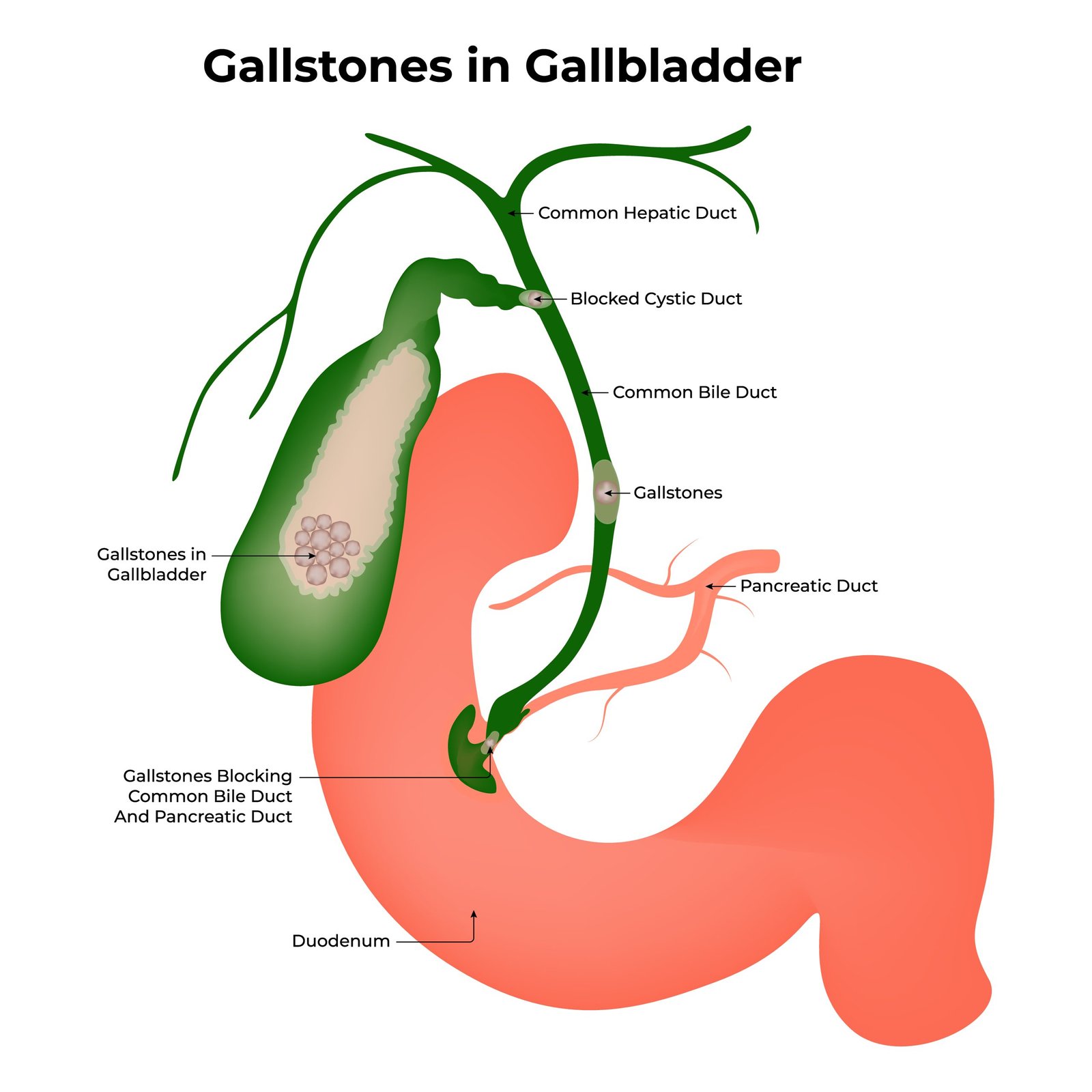Gallbladder stones (gallstones) and kidney stones are different conditions but share some similarities in terms of treatment.
Gallbladder Stones (Gallstones) Treatment
1. Medications
- Oral Dissolution Therapy: Medications like ursodeoxycholic acid can dissolve cholesterol-based gallstones over time, but this is a slow process and only works for small stones.
- Pain Management: NSAIDs or prescription pain relievers are used to manage gallstone pain.
2. Surgical Treatment
- Laparoscopic Cholecystectomy: The most common treatment for gallstones, involving the removal of the gallbladder through small incisions. Recovery is quick.
- Open Cholecystectomy: Involves a larger incision and is used when laparoscopic surgery isn’t possible due to complications.
3. Lifestyle and Dietary Changes
- Low-Fat Diet: Reducing intake of fatty, fried, and processed foods can help manage symptoms and prevent new stones.
- Hydration: Drinking plenty of water helps maintain bile composition.
4. Alternative and Preventive Measures
- Natural Remedies: Remedies like apple cider vinegar and dandelion tea may support gallbladder health, but they are not proven treatments.
- Weight Management & Exercise: Maintaining a healthy weight and regular physical activity can help prevent gallstones.
Kidney Stones Treatment
1. Medications
- Pain Relievers: NSAIDs or prescription painkillers are used to manage pain during a kidney stone episode.
- Alpha Blockers: Medications like tamsulosin can help relax the muscles in the ureter, making it easier to pass a stone.
- Stone-Specific Medications: Depending on the type of stone (e.g., calcium, uric acid, struvite, cystine), medications can help prevent future stones.
2. Surgical Treatment
- Open Surgery: Rarely used today, but may be necessary for very large or complicated stones.
3. Lifestyle and Dietary Changes
- Hydration: Drinking plenty of water is the most effective way to prevent kidney stones. Aim for 8-12 glasses a day.
- Dietary Adjustments: Depending on the type of stone, you may need to reduce salt, limit foods high in oxalates (like spinach and nuts), and reduce protein intake.
4. Alternative and Preventive Measures
- Citrus Juices: Citrate in lemons and limes can help prevent kidney stones.
- Supplements: Calcium supplements should be taken cautiously, as they can contribute to stone formation in some people.
When to Seek Medical Help
- Gallbladder Stones: Severe pain, fever, jaundice, or vomiting may indicate a serious complication and require immediate medical attention.
- Kidney Stones: Severe pain, blood in urine, fever, chills, or difficulty urinating also requires prompt medical attention.
For both conditions, a healthcare provider will determine the most appropriate treatment based on the specific situation.
